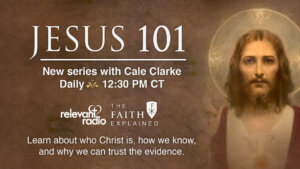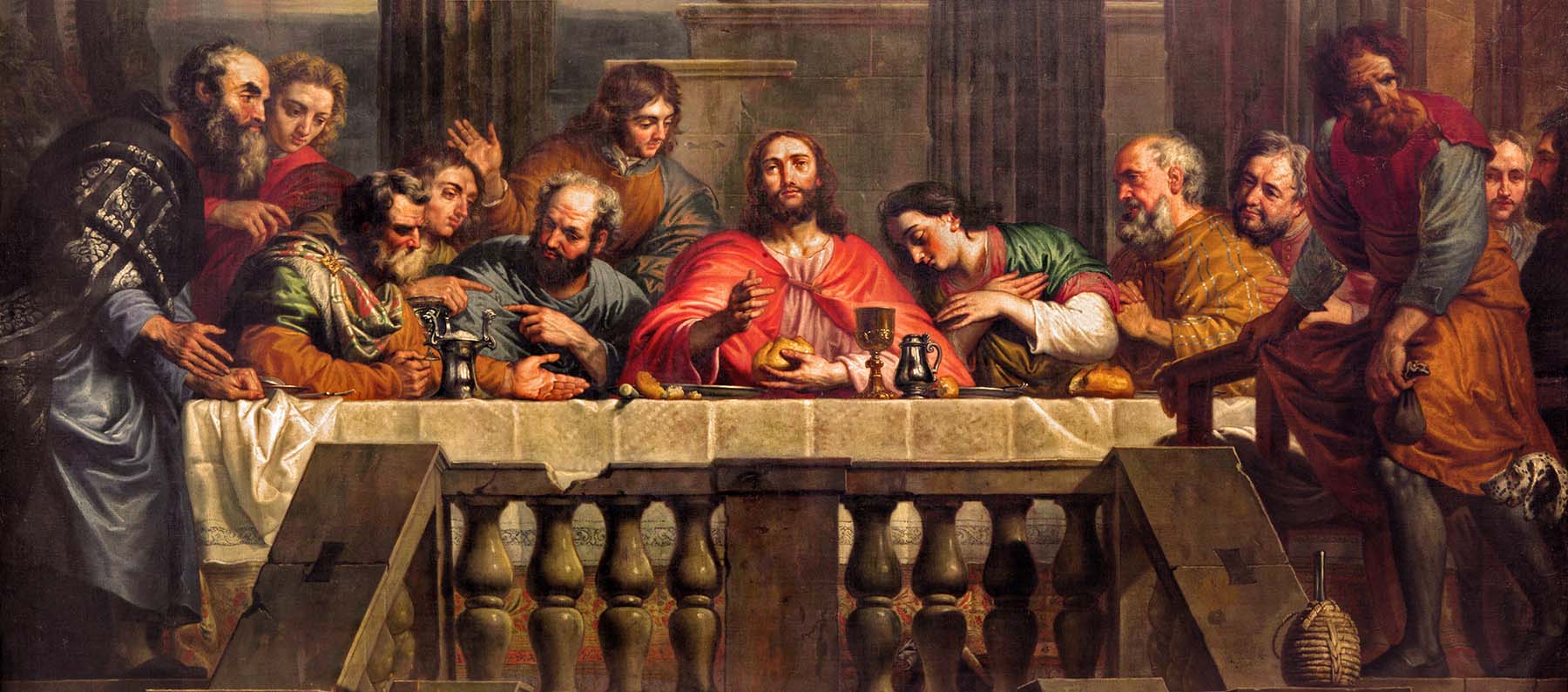Cale Clarke recently kicked off Jesus 101, his latest series on The Faith Explained, which takes a deep dive into the historical truth of Christ, the evidence that supports these truths, and how we have come to know the reality about Jesus Christ, the Son of God who became Man.
Cale spent the first episode of Jesus 101 talking about the Real Presence of Christ in the Eucharist and how we continue to celebrate the same sacrifice of the Mass that our early brothers and sisters in Christ did in the first and second centuries.
Cale began by discussing Pliny the Younger, the governor of the Roman province of Bithynia about 100 years after Christ. Pliny, naturally, was a subject of the emperor at the time, Trajan, and throughout the years, Pliny exchanged several letters with Trajan about how to deal with the growing Christian population.
“They were in the habit of meeting on a certain fixed day before it was light, when they sang in alternate verses a hymn to Christ, as to a god, and bound themselves by a solemn oath, not to any wicked deeds, but never to commit any fraud, theft or adultery, never to falsify their word, nor deny a trust when they should be called upon to deliver it up; after which it was their custom to separate, and then reassemble to partake of food, but food of an ordinary and innocent kind.” (Pliny the Younger, Letter 96 to Emperor Trajan)
There it is, from the words of the pagan governor: The early Christians celebrated the Eucharist. They would gather before light on a fixed day to bind themselves by a solemn oath, not to crimes but to live lawfully and justly and “partake of food”.
And Pliny specifies that the food of which they are partaking is “ordinary and innocent” because it was a common rumor in that day that Christians were cannibals. After all, why else would they meet in secret to consume the flesh and blood of some man named Jesus? It was much harder to substantiate these rumors back then because Mass was not public, and only those who are baptized are able to receive the Eucharist.
We do consume the flesh and drink the blood of Jesus, but we do so in a sacramental, unbloody manner. And as Cale points out, all of this information from Pliny the Younger corroborates what we know and continue to celebrate in the Catholic Church today.
Even outside the Bible, ancient writers attest to the existence of Christ and the practices of His followers. They may not agree on ideological beliefs, but they all agree on one thing: Jesus existed.
“I hope this doesn’t sound sacrilegious, but I will eat a page of my Bible if you can find just one full professor of ancient history, classics or New Testament [from] any accredited university anywhere in the world who thinks Jesus never lived.” (John Dickson)

Tune in to Jesus 101 on The Faith Explained weekdays at 12:30pm CT


